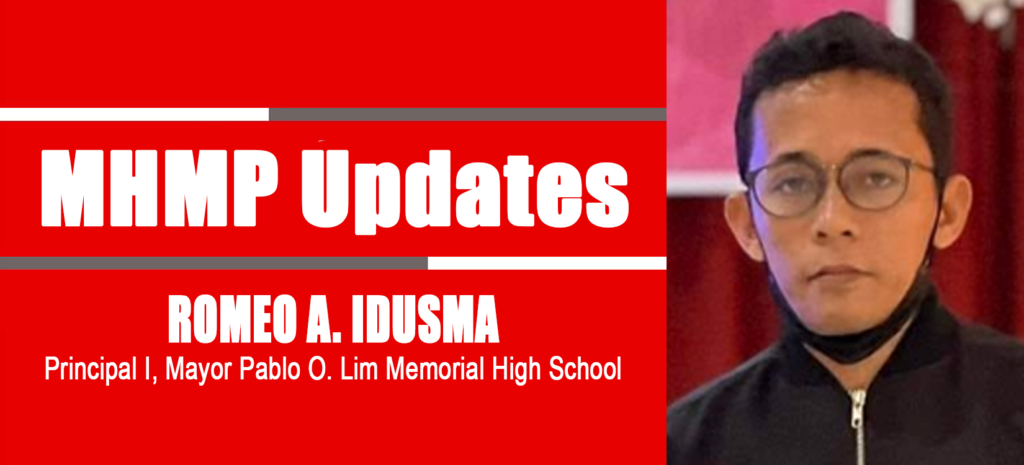
THE devastating effect of COVID-19 on children’s education has been both apparent and profound. The pandemic caused the largest and worst disruptions in education. The suspension of face-to-face instruction in schools worldwide during the pandemic has led to concerns about its negative impacts and consequences on student learning. The crisis is a global phenomenon.
In the Philippines, the outcome of the Basic Education Learning Continuity Plan of the Department of Education in response to the COVID-19 pandemic did not reach the target. Blended learning, which combines online distance learning, modular distance learning, and TV/Radio-based Instruction, has failed to deliver the desired learning. The progressive expansion of face-to-face classes revealed a sad reality. Many learners have failed to master basic skills and competencies such as writing, reading literacy, numeracy, and basic arithmetic operations.
With the unprecedented emergence of the COVID-19 pandemic, a new normal education landscape was abruptly assumed by the education practitioners from the top management of the Department of Education down to the school as implementers and frontliners of education. The school head, together with teaching and non-teaching personnel, work together to provide effective, innovative, safe, and secure delivery of learning instructions and meaningful services to learners and other stakeholders. We are committed to ensuring the safety, welfare, health, and psychosocial well-being of the learners. Likewise, we provide motivating and conducive learning spaces inside the school premises. It is our pledged duty to develop every learner holistically to be a well-rounded and competitive individual and pave their paths to better opportunities ahead. We ensure that we reach these goals through good governance and leadership, continuous learner and staff development, a safe and motivating environment, and a supportive community.
Learning loss is due to many factors such as lack of academic interest, absence of physical classes, ineffective delivery of learning, and economic and health issues. According to the Global Education Evidence Advisory Panel (GEEAP) report co-hosted by UNICEF and the World Bank, learning loss must be recovered urgently to avoid long-term damage to children’s well-being and productivity.
As we commenced SY 2021-2022, the school has undertaken great preparations, implementation, adjustment, and re-adjustment of the school programs, projects, and activities, which include the implementation of limited face-to-face classes during the last quarter of the school year.
Now, the school year 2022-2023 sets off the implementation of recovery programs and activities focusing on the limited mobility of learning delivery, which directly tormented the literacy and numeracy skills of the learners across grade levels. The claim of having destitute learning gaps and losses was corroborated by the assessments given by the region and division, together with the results of the localized assessments conducted by the school.
The school fervently gathered both qualitative and quantitative strategies to combat restrictions on the effective use of school resources, ensured higher learning outcomes, up- and re-skilled teachers in terms of their professional development, mental health, and socio-emotional well-being, and established solid relationships with stakeholders and parents.
As a learner-centered and child-friendly institution, we continuously provide quality education to our learners and offer meaningful services to every individual…and advocate the “No child left behind policy” and the DepEd’s tag line “In any situation, education must continue”.
Valencia District Schools conduct Comprehensive Literacy Assessments for learners from grades 7 to 12. It was administered in school as a tool for determining significant learning gaps and losses among learners in literacy and numeracy. The results would be the basis for learning recovery from the dismal aftermath of the COVID-19 pandemic’s peak, which sluggishly delivered quality education. These gaps were attributed to reduced learning opportunities at home and decreased social interaction between learners and their teachers.
On the other hand, learners were appraised academically for using localized assessments of learning. The analyzed assessment results were the Phil-IRI and Quarterly Assessments to capture the baseline data on literacy and numeracy skills.
Public school district supervisors and school heads are developing a learning recovery plan framework to guide schools in addressing learning gaps due to pandemic-related disruptions. In addition, DepEd intends to step up its reading interventions, carry out routine home visits and follow-ups, implement study groups and buddy systems in person and virtually, establish literacy at home and in the community, utilize parent or guardian teacher volunteers’ services, and create appropriate assessment tasks and resources.
Learners’ learning gaps, particularly in the disconsolate literacy skills of the identified refreshers, were initially addressed using project interventions such as Brigada Pagbasa (PROJECT BASA (Becoming Achiever Students through Active Reading]) and Project i-SMART (Improving Sci-Math Ability through Remedial Tutoring (ISMART)]. Likewise, the school designed and implemented programs and projects as interventions to fortify learning gaps and losses among learners vis-à-vis literacy and numeracy.

